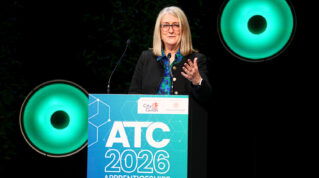2025 will be a pivotal year for FE. With a new government in office and a Spending Review on the horizon, decisions in the coming months will shape the funding landscape through to 2028. These will reveal how the government intends to balance its ambitions to improve education against public finance constraints.
Our latest report on education spending in England shows how FE has faced some of the deepest funding cuts across the education system. This reflects a persistent historical trend: when overall spending increases, FE tends to receive smaller boosts, and when budgets are tightened, it often bears the brunt of the reductions.
The data tells a stark story. Between 2010–11 and 2019–20, funding per student in colleges dropped by 14 per cent in real terms, while school sixth forms saw an even sharper decline of 28%. Although extra money has been allocated since 2019, funding remains well below 2010 levels. Funding per student in FE colleges is 11 per cent lower than in 2010-11, while sixth form funding has fallen by 23 per cent.
In last year’s Autumn Budget, the government announced a £300 million cash-terms boost for colleges and sixth forms in 2025–26. However, rising student numbers and inflation mean that, even if the entire amount were directed to 16–19 education, it would only maintain funding per student at current levels in real terms.
Adult education and skills funding tells a similar story. Total spending on adult skills and apprenticeships is around 23 per cent below 2009–10 levels, even after accounting for recent funding increases. Classroom-based adult education has experienced some of the sharpest reductions, with real-terms funding levels over 40 per cent lower than in 2009–10. Learner numbers have fallen dramatically alongside these reductions, dropping by 60 per cent over the same period.
Although apprenticeship funding has been more stable over time, it has increasingly shifted towards higher-level apprenticeships. This raises important questions about access for younger and less-skilled learners, who may find fewer pathways available to them.
Adding to existing financial challenges is the ongoing growth of the student population. Since 2018, the number of 16- to 18-year-olds has grown 13 per cent, by 230,000 with a further 5 per cent increase anticipated by 2028. If participation rates remain unchanged, this means an extra 60,000 students in colleges and sixth forms.
They will need to expand capacity, hire more staff and maintain facilities. To keep funding per student at current levels in real terms, the government would need to increase annual funding by almost £200 million in today’s prices by 2027–28 just to keep spending per student constant in real-terms. Without this, a real-terms freeze in total funding would mean a 4 per cent drop in per-student funding.
Many providers are already feeling the financial strain. In 2022–23 (the latest year for which data is available) 37% of FE colleges reported operating in deficit – a reminder of the challenges already faced by many institutions as they attempt to alleviate rising costs.
Meanwhile, the pace of policy churn shows no sign of abating. Implementation of the Lifelong Learning Entitlement (LLE) has been continually debated. The apprenticeship levy is being turned into a growth and skills levy to subside a wider set of training activities. ‘Skills England’ has been created to provide strategic oversight of the post-16 skills system and future skills needs. The government has chosen to continue funding many level three qualifications for the next few years, but without making it clear how existing level three qualifications and T levels will coexist in a fractured system over the long-run.
This year’s Spending Review will be a critical moment for FE. With public spending dominated by competing demands – including health and defence – FE funding will likely remain constrained. The outcomes of the review will determine the sector’s ability to meet rising demand, implement ambitious reforms, and secure its long-term financial stability. For providers, students and employers, the stakes could not be higher.
















Mainly trying to think which years *haven’t* been pivotal for FE funding over the last twenty eight I’ve been in the sector (a couple in the early 00s perhaps, but that’s about all I’ve got…)